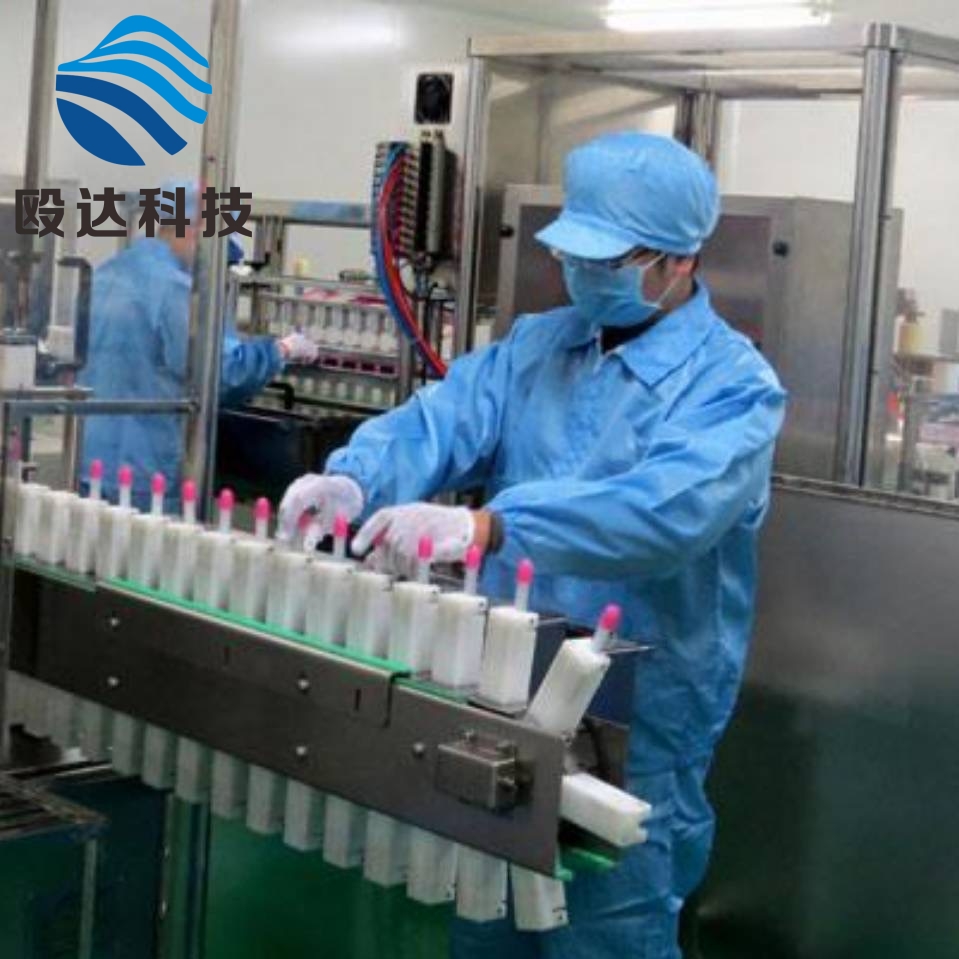-
Categories
-
Pharmaceutical Intermediates
-
Active Pharmaceutical Ingredients
-
Food Additives
- Industrial Coatings
- Agrochemicals
- Dyes and Pigments
- Surfactant
- Flavors and Fragrances
- Chemical Reagents
- Catalyst and Auxiliary
- Natural Products
- Inorganic Chemistry
-
Organic Chemistry
-
Biochemical Engineering
- Analytical Chemistry
- Cosmetic Ingredient
-
Pharmaceutical Intermediates
Promotion
ECHEMI Mall
Wholesale
Weekly Price
Exhibition
News
-
Trade Service
Clostridium difficile (Clostridioides difficile) is often referred to as C.
difficile difficile or C.
difficile diff, a bacterium that causes serious intestinal disease, which, as its name suggests, is difficult to study and its infections difficult to treat; About one-sixth of infected individuals relapse within two months, yet scientists have not yet explained why Clostridium difficile infections are so difficult to treat in others compared to
some people.
The human gut is filled with trillions of microbes that influence the virulence of multiple pathogens, and until now, scientists have little understanding of how Clostridium difficile interacts
with the rich microbes in the gastrointestinal tract.
Recently, a study entitled "Enterococci enhance Clostridioides difficile pathogenesis" published in the international journal Nature, scientists from Children's Hospital of Philadelphia and other institutions found that an opportunistic pathogen of antibiotic resistance, enterococcus, may cooperate with Clostridium difficile to reshape and enhance the metabolic environment in the intestine, so that Clostridium difficile continues to thrive
。
Enterococci in the human gut may promote Clostridium difficile infection and increase its virulence
.
Image source: Nature (2022).
DOI:10.
1038/s41586-022-05438-x.
Researcher Dr.
Joseph P.
Zackular said that when we talk about bacterial infection, we usually think of the pathogen itself, but the "bystander" bacteria in the gut may have a huge impact on this infection process; The results of this study suggest that the overlap of the two pathogenic bacteria (Enterococcus and Clostridium difficile) may not be just a coincidence, but can really take advantage of each other's strengths, and that understanding the relationship and the factors associated with the clinical outcome of Clostridium difficile infection is important
for addressing pressing public health challenges.
Previous findings have shown that adults infected with C.
difficile have high levels of enterococci in the gut, and vancomycin-resistant enterococci (VRE) are often co-infected with Clostridium difficile, however, the effect of enterococci on susceptibility to Clostridium difficile and clinical outcomes is currently unknown
.
To further uncover the association between Enterococcus and C.
difficile during infection, the researchers analyzed stool samples from 5 children infected with C.
difficile and, consistent with the results of the study in adults, found that the stool samples from these patients contained high levels of enterococci and a positive correlation
between enterococcus and Clostridium difficile burden.
When it was confirmed that enterococci were higher in children infected with Clostridium difficile and that there was a positive correlation between it and the burden of C.
difficile, the researchers verified the mechanism of interaction between the two pathogens, and using in vitro and in vivo experimental models, the researchers found that enterococci may increase their virulence by enhancing the production of Clostridium difficile toxin
.
Subsequently, using data from transcriptomics to metabolomics, that is, studying the RNA transcripts and metabolites associated with these pathogens, the researchers found that enterococci may be able to modify the intestinal environment and effectively reshape the environment in which C.
difficile lives, making it more conducive to pathogen reproduction
.
Image source: https://pubmed.
ncbi.
nlm.
nih.
gov/36385534/
The researchers said that enterococci can use arginine as energy, and in this process, pathogens will export ornithine, and further analysis showed that during Clostridium difficile infection, enterococci can regulate the levels of arginine and ornithine in the intestine, and arginine consumption plays a central role
in Clostridium difficile virulence.
When analyzing the microbiome of children with Clostridium difficile infection and inflammatory bowel disease, they found that these children contained high levels of fermentable amino acids, including ornithine, and they also observed that there may be a positive correlation between Clostridium difficile burden and ornithine, which may support the key role
of this amino acid in the process of Clostridium difficile infection.
Taken together, Dr.
Zackular said, the data suggest that during Clostridium difficile infection, Enterococci and C.
difficile can support Clostridium difficile colonization, pathogenicity, and persistence in the gut through metabolic interactions; In the future, the researchers also plan to conduct an in-depth analysis of how to target the metabolism of enterococci and the resulting amino acid blueprints in the gut, which may serve as a new way
to change the pathogenesis of Clostridium difficile.
In summary, the results of this study provide new ideas and insights
for revealing the key role played by pathogenic microorganisms in susceptibility and severity of Clostridium difficile infection.
Original source:
Alexander B Smith, Matthew L Jenior, Orlaith Keenan, et al.
Enterococci enhance Clostridioides difficile pathogenesis, Nature (2022).
DOI: 10.
1038/s41586-022-05438-x







